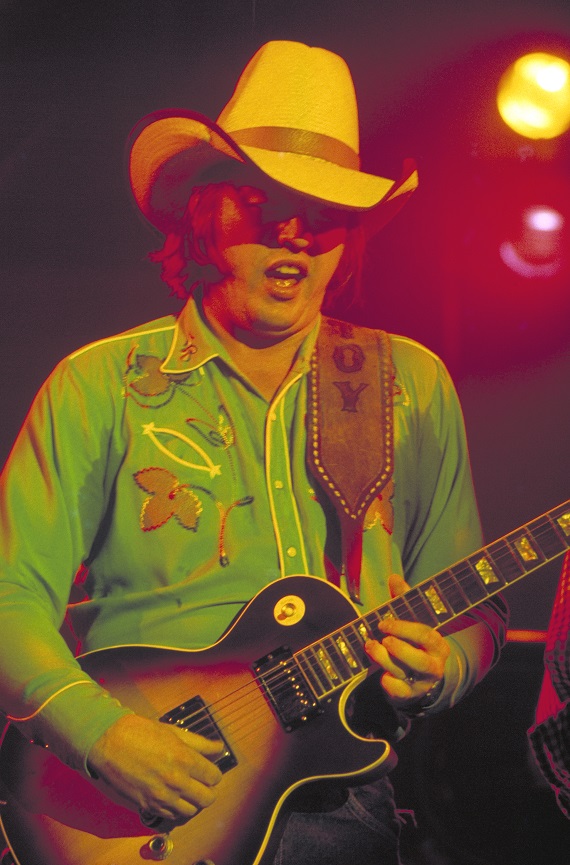Today, November 13, is the birthday of one of the Troubadours of Southern Rock, Toy Talmadge Caldwell of The Marshall Tucker Band.
Toy was born in 1947, grew up in Spartanburg, and like his Father, served in the US Marine Corps, where he saw action and was wounded in Vietnam. He had begun playing guitar as a teen and after his return from the war, and subsequent discharge from the Marines, he began playing music with some of his life-long friends. He and his brother Tommy would ultimately form the backbone of what became The Marshall Tucker Band. This band, with Toy as its driving force, rose to become one of the pioneering influences behind what would later be termed “Southern Rock.”
His friend, Charlie Daniels said of Toy:
I have the greatest respect for talented people who can take nothing and make something out of it. Such is the case of the songwriter. He pulls thoughts out of thin air and molds them into a song that never existed before. And when that same songwriter is capable of coming up with a great melody it’s an even bigger accomplishment. Such a man was my friend Toy Caldwell. He came with his own melodies and wrote down to earth, straight ahead, beans and cornbread type lyrics that us common folk can identify.
In addition to having written many of the band’s songs, including such iconic ballads as “Fire on the Mountain”, “Can’t You See” and “Heard it in a Love Song”, Caldwell was also one of the most gifted guitarists in the history of American Music. He had a natural ability to move between riffs ranging from Western Swing, Jazz, Rock-a-Billy and Blues and he did so often in the same solo performance.
Moreover, he had his own unique sound and style, a trait which is uncommon among modern guitarists. Of his guitar playing, Daniels said:
To say Toy was unique is a gross understatement. He played his own style and his own riffs and you could have listened to him alongside fifty other guitar players and have no trouble picking him out. He was just that different.
Toy’s guitar work on “Desert Skies” is one of my favorites. It showcased at length his comprehension of Jazz and Western guitar progressions, but you hear the influence in other ballads as well, such as in “This Old Cowboy.”
If anyone doubts his prowess at playing gritty, down-home blues, they should have a listen to Caldwell’s live performance of “Everyday I have the Blues.” Memphis Slim, Elmore James and BB King would be proud.
One of the more eloquently phrased solos that Toy did was, in my opinion, his guitar work on “Take the Highway”. It was this song in general, and Toy’s guitar playing in particular, that led me to become a fan of The Marshall Tucker Band. His frequent starts and stops, note bending and gripping attack all give the impression that he is talking to you through the strings of his Gibson Les Paul.
Toy Caldwell was the consummate Southern musician. His style encompassed a wide range of influences from the various aspects and cultural underpinnings, all of them Southern, that have made American music what it is. As “I Hear the South Calling Me”, one of his later solo tracks, would demonstrate, Toy was unapologetically Southern and never lost sight of his deeply embedded Dixie roots.
Toy’s body of work made a mark on Southern Rock that cannot be overstated. He brought together in one unique sound a style of playing that appealed to audiences made up of all people from all genres, and who came from a variety of societal backgrounds. With his music Toy proved that Southern culture is in fact the driving force behind “American” music. Toy passed away in 1993, but his legacy lives on. His contributions to music will never be duplicated.







